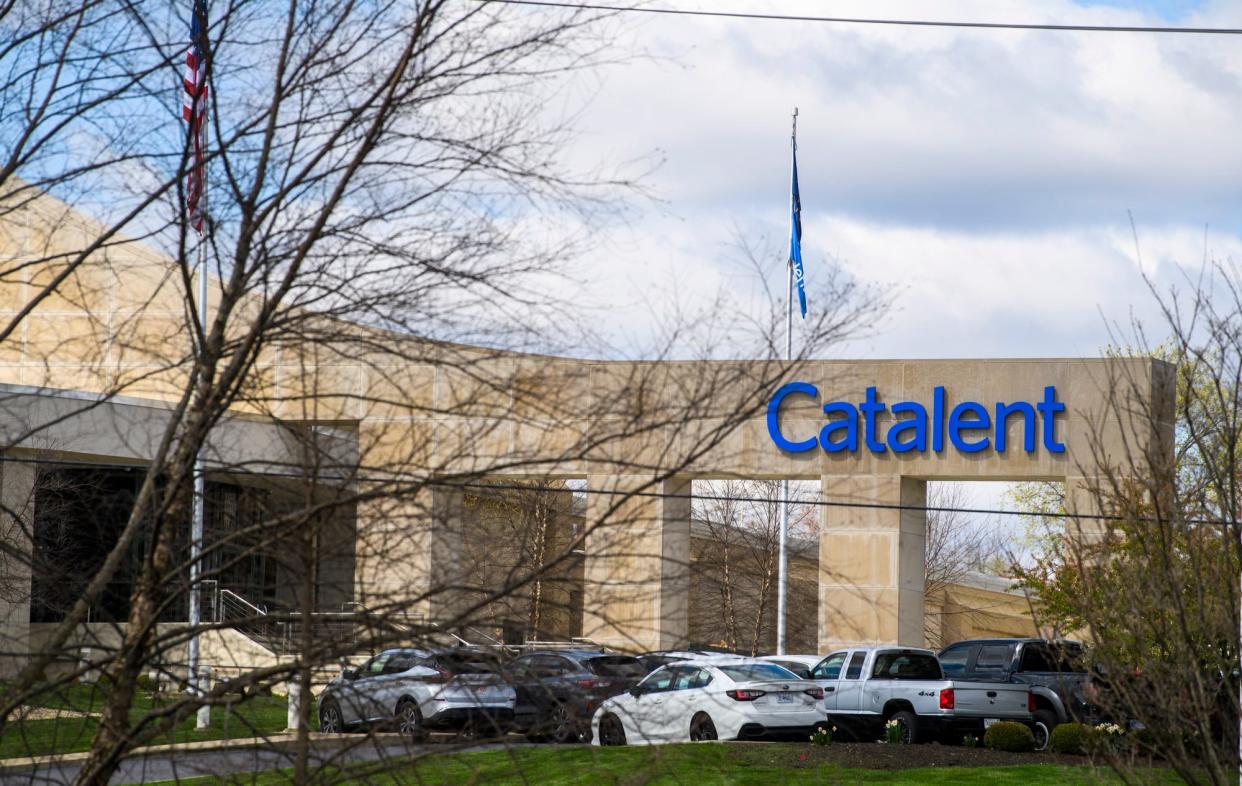'Unsustainable': Bloomington Catalent facility cuts 150 more jobs

Catalent is cutting 150 more jobs in Bloomington because the company underestimated the complexity and difficulty of transitioning to post-pandemic production, the company’s local manager said.
“Unfortunately we didn’t anticipate the unprecedented complexity involved in exiting the pandemic, both operationally and financially, and the difficulty of pivoting this site to non-COVID programs,” said Anibal Carlo, vice president and general manager of the Bloomington facility.
More job cuts: Cook Medical to reduce global workforce by 4% in strategic realignment
“Among other problems, we created an infrastructure — people and processes — that is too costly and, therefore, unsustainable,” Carlo said.
Carlo made those comments in an internal announcement that an employee shared with The Herald-Times.
In an email, company spokeswoman Laine Mello said global demand for vaccines declined sharply as the pandemic receded, requiring the company to make adjustments.
“These changes are unfortunate but necessary to help ensure Catalent is able to continue operating in a sustainable manner,” Mello said. “The Bloomington facility remains a critical part of Catalent’s growth plans and its global network.”
Carlo said the company is cutting the jobs to eliminate duplication and operational inefficiencies. Affected employees, who were to be notified by Friday, work primarily in “leadership and support functions.”
Mello would not say what kinds of help the company is providing affected employees, but Carlo said in his announcement the company was trying to minimize the cuts’ impact by eliminating 100 open jobs and “reallocating key talent to critical roles wherever possible.”
Catalent in Bloomington grew quickly during pandemic
Catalent grew rapidly in Bloomington during the pandemic, investing millions and hiring hundreds to ramp up production of COVID-19 vaccines.
In April of last year, Catalent committed to investing $350 million in its Bloomington facility and to create “in the coming years” 1,000 new jobs with an average hourly wage of $32, or nearly $67,000 per year. A few months earlier, the company had said it expected annual sales to nearly double to $7.5 billion through 2026, based partially on demand for vaccines.
However, Catalent said in December that it was cutting about 400 local production jobs.
More: Catalent in Bloomington is eliminating 400 jobs. Here's why
At the time, General Manager Andrew Espejo told employees the company was "navigating a challenging global economic environment, which requires the company to manage its costs for the post-pandemic world.”
Efficiency lost when scale is too quick
An Indiana University economics professor said Catalent’s announcement is not a surprise, given factors including the end of the federal COVID emergency, rising inflation and likely overinvestment during the pandemic.
“There was a lot of uncertainty on how much infrastructure would be needed to get us through the pandemic and how long (vaccine producers) were going to have to do these iterations of boosters,” said Phil T. Powell, clinical associate professor of business economics and public policy and academic director of the Indiana Business Research Center.
Given the severity of the crisis, health care companies such as Catalent “felt a social responsibility to probably overinvest,” he said.
Plus, Powell said, companies had to boost production rapidly.
“When you ramp up that quickly it’s hard to do it the right way that maximizes productivity,” he said.
Across the health care sector, companies are now cutting costs as they’re seeing sharply declining demand and rising borrowing costs, Powell said.
Catalent shares close down Thursday
Investors have reacted to Catalent's recent struggles.
Catalent’s shares lost about a quarter of their value on Nov. 1 after the company lowered its earnings expectations for 2023 because of “near-term headwinds,” as CEO Alessandro Maselli put it.
On April 14, Catalent's shares lost nearly 27% of their value after the company said it was dealing with "productivity issues and higher-than-expected costs experienced at three of its facilities" including in Bloomington.
Shares fell another 26% on May 8 after the company said it was delaying the release of third-quarter results. When the company announced results on May 19, shares climbed nearly 16%.
On Thursday, shares closed at $37, down nearly 18% for the year.
The pandemic has killed nearly 7 million people globally, according to the World Health Organization. About 13.4 billion doses of vaccines have been administered worldwide.
Boris Ladwig can be reached at bladwig@heraldt.com.
This article originally appeared on The Herald-Times: Bloomington Catalent plant cites 'unprecedented complexity' in job cuts

